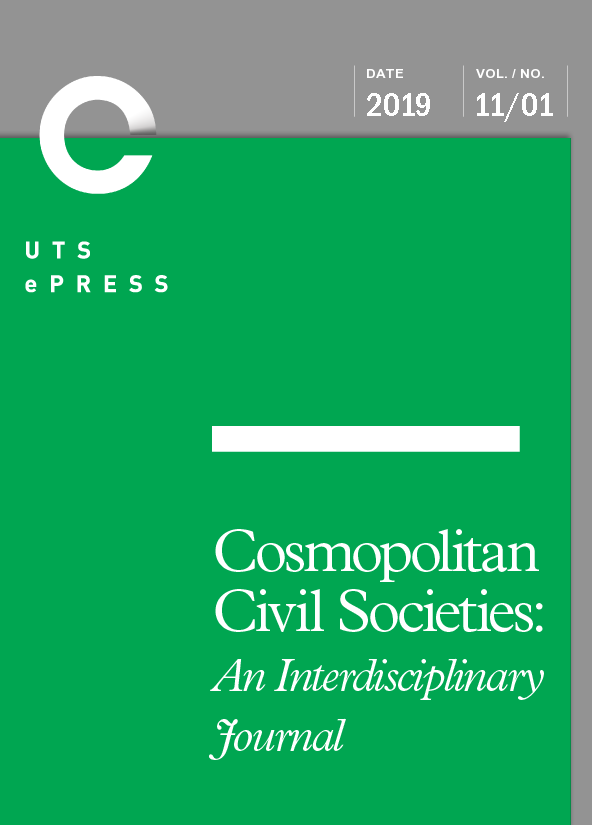Structures and Practices of Cross-Sector Engagement in Counter-Human Trafficking Coalitions in the Global South
Main Article Content
Abstract
Human trafficking is a violation of human rights that takes many forms (U.S. Department of State, 2017). Participation in same-sector and multisector coalitions and collaborative counter-trafficking efforts are being actively encouraged by the aid industry globally. Working in partnership with other organizations within and across sectors is increasingly perceived as necessary. There is a wide variety of models for structuring and enacting multisector collaboration to counter human trafficking, but little is known yet about the effects of various models combined with the communication practices of leaders and members, on the functioning and outcomes of the collaborations, and most extant studies overlook the Global South. This paper helps redress the dearth of research on coalitions in the Global South through a multimethod, comparative analysis of three national level counter-trafficking coalitions (CTCs) operating in the regions of sub-Sahara Africa, Asia-Pacific Islands, and Southeast Asia. All three CTCs began in the civil society sector and are comprised primarily of nongovernmental organizations (NGOs). The primary research question addressed in this paper is: Through what structures and practices do NGO-led CTCs in Global South countries engage with public and private sector entities? Findings indicate similarities in the vulnerabilities of NGO-led CTCs in Global South countries, and the challenges they face in cross-sector interactions, but variations in the strategies they employ in those interactions. Each CTC engages the public and private sectors in their country in multiple ways: through membership in the CTC, partnerships with the CTC, and/or a range of engagement practices. Finally, NGO-led CTCs in the Global South engage in the kinds of cross-sector and local-global dynamics that are a key focus in critical cosmopolitan theorizing.
Article Details
Issue
Section
Authors who submit articles to this journal from 31st March 2014 for publication, agree to the following terms:
a) Authors retain copyright and grant the journal right of first publication with the work simultaneously licensed under a Creative Commons Attribution License that allows others to share and adapt the work with an acknowledgement of the work's authorship and initial publication in this journal.
b) Authors are able to enter into separate, additional contractual arrangements for the non-exclusive distribution of the journal's published version of the work (e.g., post it to an institutional repository or publish it in a book), with an acknowledgement of its initial publication in this journal.
c) Authors are permitted and encouraged to post their work online (e.g., in institutional repositories or on their website) prior to and during the submission process, as it can lead to productive exchanges, as well as earlier and greater citation of published work (See The Open Access Citation Advantage Service). Where authors include such a work in an institutional repository or on their website (ie. a copy of a work which has been published in a UTS ePRESS journal, or a pre-print or post-print version of that work), we request that they include a statement that acknowledges the UTS ePRESS publication including the name of the journal, the volume number and a web-link to the journal item.
d) Authors should be aware that the Creative Commons Attribution (CC-BY) License permits readers to share (copy and redistribute the work in any medium or format) and adapt (remix, transform, and build upon the work) for any purpose, even commercially, provided they also give appropriate credit to the work, provide a link to the license, and indicate if changes were made. They may do these things in any reasonable manner, but not in any way that suggests you or your publisher endorses their use.
For Volume 5 No 3 (2013) and before, the following copyright applied:
Authors submitting articles to UTSePress publications agree to assign a limited license to UTSePress if and when the manuscript is accepted for publication. This license allows UTSePress to publish a manuscript in a given issue. Articles published by UTSePress are protected by copyright which is retained by the authors who assert their moral rights. Authors control translation and reproduction rights to their works published by UTSePress. UTSePress publications are copyright and all rights are reserved worldwide. Downloads of specific portions of them are permitted for personal use only, not for commercial use or resale. Permissions to reprint or use any materials should be directed to UTSePress.
